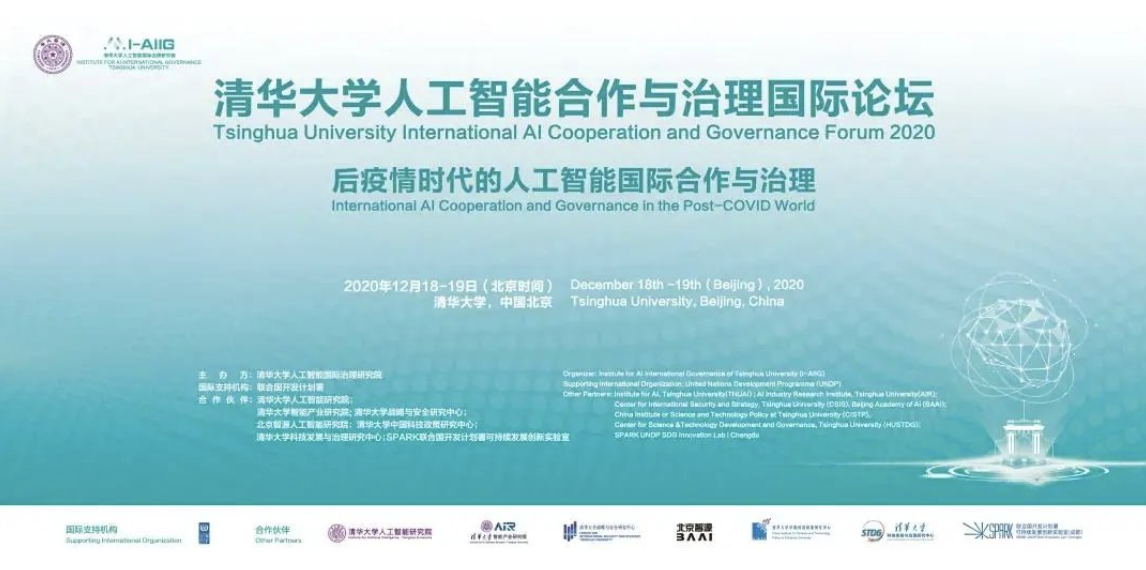At AIR, we look at AI technology and industry research with the following three R principles:
01 Responsive
Responsive AI: We choose to work on technologies that are responsive to the needs of the societies and industry: for example, data and analytic models that predict and prevent pandemics, deep learning algorithms that accelerate drug discoveries, technologies that improves personal health, and autonomous driving and smart transportation that save lives, reduce traffic, and improve our environment.
02 ResilientResilient AI: We must advance our technologies to become more transparent, explainable, and robust. We must reduce data biases and leakage, model vulnerability, algorithm attack,and security risks. We need to develop new algorithms that embrace not only big data /computing capability, but also knowledge and inference with causality and logics.
03 ResponsibleResponsible AI: When we work on theory, algorithms, and especially applications to different industries, we must keep in mind the key underlining principles and understand consequences and implications of our technologies. Being scientists and technologies, we often focus on working on HOW and ignore the very question of WHY and WHAT. That is not okay at the age of AI, we must understand the use and potential misuse of technologies – putting ethics and value beyond the technology itself.
AIR is committed to responsible AI
Faced with the rapid development of AI, Zhang Yaqin proposed the 3R principle, hoping to promote the development of the empowerment industry through the three principles of Responsive, Resilient, and Responsible.
Insstitute for AI Industry Research, Tsinghua University( AIR) hopes to do responsible AI, understand the underlying foundations of different industries, analyze the impact and consequences of technology, and promote the first through technological innovation, international cooperation and governance, and large-scale use of artificial intelligence. Four industrial revolutions.
About the forum

The first Tsinghua University International Forum on Artificial Intelligence Cooperation and Governance covered the role of artificial intelligence in fighting the new crown epidemic, promoting sustainable development, maintaining international security, promoting international cooperation, and safeguarding data security.
Nearly 70 leading figures in artificial intelligence and more than 60 institutions participated in the forum. The forum was supported by the Institute of Artificial Intelligence of Tsinghua University, the Brookings Institution, SPARK and the United Nations Development Program Sustainable Development Innovation Laboratory. Cooperation and support.
Original speech by Ya-Qin Zhang
Speech on AI governance at Tsinghua Univ.Dec.18, 2020, Ya-Qin Zhang
Good morning, ladies and gentleman,
First of all, let me just say how relevant and timely it is to have a forum on this critical topic of AI governance – as we approach the end of 2020, certainly the most eventful and difficult year in our recent memory.
We continued to advance in the AI technological front with large model, large data, and large computing. An example is OpenAI’s GPT-3, the pre-trained transformer platform for Natural language processing, represents the state-of-art AI capability with over 170 Billion parameters, implemented w over 10,000 GPUs and a quarter million CPU cores.
We see the rapid application of AI-deep learnings for every segment of industry, whether it was healthcare, education, transportation, and finance, or manufacturing.
For example, significant progress is being made in autonomous driving, In China some 30 cities began commercial trials of robotaxi this year. I was in Guangzhou just over a week ago to test out the Apollo robotaxi --- after Changsha, Beijing, and a few other cities. While it still takes some time to bring to mainstream in large volume – as you know there are also many non-tech issues: policies, regulations, liabilities, ethnics and driving habits, I do see tremendous strides made in algorithms. Technologies, and commercial trials.
Another example is AlphaFold 2, continuing the miraculous path of AlphaGo, AlphaZero, and AlphaFold 1. AlphaFold 2 achieved breakthrough in predicting protein 3D folding structure – with the accuracy close to real experimentation which usually takes long cycle with super expensive instrumentation and human resources. Indeed, New algorithms like AlphaFold can transform the drug discovery and medicine with an unprecedented pace we have never seen before.
Just two weeks ago, we officially started a new institute at Tsinghua University, the institute for AI industry research (AIR). AIR aims to become an open and global R&D center that develops core technologies, empower industries, and advance societies, leveraging the new wave of the fourth industrial revolution.
As President Qiu Yong envisioned and articulated, there are three key pillars for AI at Tsinghua University, one for academic research (AI research institute), led by Prof. Zhang Bo and Prof. Zhang YaoXue, one for international governance (A-IIG), led by madam Fu Ying and Prof. Xue Lan, and one for AI industry research, headed by myself and a few co-leagues. The three complimentary institutes try to address fundamental research, applied industry technologies, and their societal impacts and implications in a holistic way.
For AIR, we look at AI technology and industry research with the following three R principles:
Responsive AI: We choose to work on technologies that are responsive to the needs of the societies and industry: for example, data and analytic models that predict and prevent pandemics, deep learning algorithms that accelerate drug discoveries, technologies that improves personal health, and autonomous driving and smart transportation that save lives, reduce traffic, and improves our environment.
Resilient AI: We must advance our technologies to become more transparent, explainable, and robust. We must reduce data biases and leakage, model vulnerability, algorithm attack and security risks. We need to develop new algorithms that embrace not only big data /computing capability, but also knowledge and inference with causality and logics.
Responsible AI: When we work on theory, algorithms, and especially applications to different industries, we must keep in mind the key underlining principles and understand consequences and implications of our technologies. Being scientists and technologies, we often focus on working on HOW and ignore the very question of WHY and WHAT. That is not okay at the age of AI, we must understand the use and potential misuse of technologies – putting ethics and value beyond the technology itself.
With today’s AI governance, let me also offer the following two suggestions:
Conduct active discussion and candid dialogue at global level, through industry forums, think tanks, and international standardization efforts, to tackle some of the most pressing issues facing all of us, whether it’s for autonomous driving, biological computing, face recognition, elimination of jobs, and so on. I applaud the leadership by Madam Fu Ying at Tsinghua, along with Brookings Institute in US, and Moodera foundation in Australia – they have courageously worked on the boundary, risks, governance and framework of the AI for military use – arguably the most difficult and critically important topic of all.
Actively to deploy new technologies to deal with sensitive issues of privacy, security, and data solvency, and governance. For example, federated learnings that can do learning without actually sharing original data (e,g, medical data, or financial data), multi-party secured computing that can do computing with encrypted data, differential privacy that you can share the attributes and features without disclosing identities, and of course other new encryption/authentication algorithms for privacy and security.
Again, I am super excited about the transformative power of AI and the fourth industry revolution. Only through technology innovation, international cooperation and more importantly the proper use and governance of AI, can we fully unleash the full potential and power of the new wave of the industry revolution.


